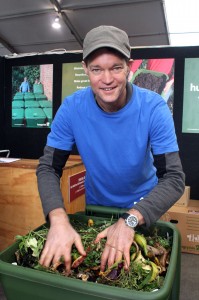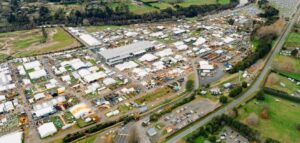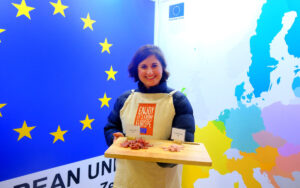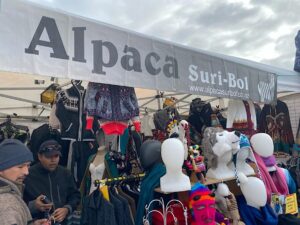Kiwis curious about food-waste
Hungry Bin brings back its simple idea to Fieldays of composting food-scraps using New Zealand tiger worms.

According to an Auckland-based waste company, New Zealand’s awareness and interest in composting food-waste is growing.
Hungry Bin is bringing back its simple idea of composting food-scraps using New Zealand tiger worms to Fieldays.
Creator Ben Bell says Hungry Bin is a natural composting system in a contained environment that doesn’t smell and is easy to move.
One bin can process “the average food waste of one family”, and up to two kilos of waste per day.
He said there is a huge amount of energy in food, but most don’t think about it because it’s invisible.
“Studies show in the United States a third of all food produce is wasted. It’s never eaten.
“We throw out a lot of really valuable nutrients in our food waste. But it’s actually important we capture them,” said Bell.
This is premise behind his innovative idea.
The Hungry Bin contains soil and to start off with half a kilo of worms – which is 2000 worms.
The idea is to build up the population of worms, breeding them until there is a full population of 10,000 worms.
Once the bin is full of food, the worms will begin breaking it down, and near the bottom of the bin is a filter system, catching the “worm juice” – a natural liquid fertilizer for plants.
Hungry Bin operations manager Therese Mangos said using worms in composting is the way to go.
“Nothing breaks down food faster than when an animal eats it.
“Worms eat their own weight in food every day, so the more worms you have in the bin, the more food you can process.
“The variety of worms we use is tiger worms – they are surface feeders. The larger the surface area, the more food they will process.”
And the concept is catching on.
Mount Eden Prison has 200 Hungry Bins, composting food waste from all 1400 people, said Bell.
“Auckland Council and Counties Manukau are putting the bins in their offices, and lots of other businesses are catching onto the idea too.”
They also export to Australia, Spain, Holland and the UK.
“I just think world-wide lots of people are recognising that food waste is actually a really big problem,” he said. “And definitely in New Zealand.”
He thinks Fieldays is the perfect domain to display and discuss natural composting, as “there are a lot of people here interested in this”.
“The rural community really understand the value of good soil.”
Local Caroline Taylor said she loved the idea.
“I think they [the bins] are brilliant. It’s on my list of things I want to buy.”




